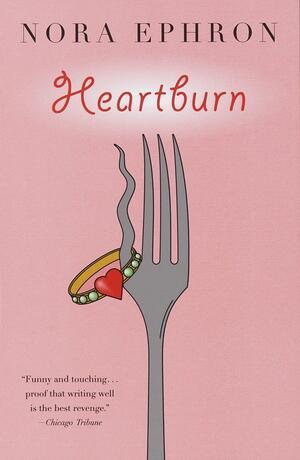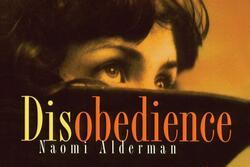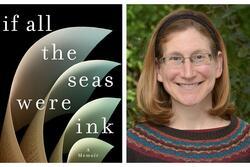A Different Kind of Romantic Comedy
Nora Ephron is perhaps best known for her romantic comedy films, such as You’ve Got Mail and When Harry Met Sally. Her first novel, Heartburn (1983), shares many of these films’ best attributes: strong women characters, a perfect blend of levity and pathos, and a specifically New York sensibility.
Of course, “New York” is often a code for “Jewish.” As Heartburn’s protagonist, Rachel Samstat, says, calling someone “too New York” “is a cute way of being anti-Semitic, but who cares? I’d rather be too New York than too anything else.” And indeed, Rachel’s story is decidedly Jewish, from her observations about Washington, D.C.’s goyishness (“Listen, even the Jews there are sort of Gentile”), to her hypothesizing about the Jewish princess stereotype (“I’ve always believed that the concept of the Jewish princess was invented by a Jewish prince who couldn’t get his wife to fetch him the butter”), to her therapist who tells jokes about kreplach and stories set in Vilna, Kiev, and Minsk to illustrate psychological dynamics (“There’s no real way to convey what she does in her office that doesn’t sound like some sort of Yiddish mumbo jumbo”).
Heartburn is a roman à clef based on Ephron’s high-profile relationship with Carl Bernstein (of Woodward and Bernstein), her husband of four years. The story centers around Rachel’s discovery, while seven months pregnant with her second child, that her husband Mark is having an affair. The first-person narrative reads like a long comedic soliloquy, and it’s a real treat to be privy to Rachel’s zany, slightly manic internal monologue. This may be a story of marital infidelity, but it is far from a somber one; from tragedy, Ephron mines high comedy, creating a narrative that is riotously funny. Even as Rachel navigates heartbreak, she finds comic relief in the mundane realities of everyday life and relationships. With acerbic wit, Ephron lays bare the absurdities of not just marriage, but all kinds of human relationships.
The novel’s title, Heartburn, refers not only to the emotional pain of heartbreak, but also to the digestive phenomenon. Food plays no small role in Heartburn: Rachel is a professional food writer and food show host. (My favorite tidbit: “I managed to get Isaac Bashevis Singer to make noodle kugel on the pilot.”) Decades before it became en vogue to talk about love languages, Ephron’s heroine reflects, “I loved to cook, so I cooked. And then the cooking became a way of saying I love you. And then the cooking became the easy way of saying I love you. And then the cooking became the only way of saying I love you. I was so busy perfecting the peach pie that I wasn’t paying attention.”
The narrative is peppered with recipes that (sometimes) relate to the story in one way or another: lima beans with pears, four-minute eggs, Lillian Hellman’s pot roast. Heartburn is positioned as the narrator’s own memoir, complete with her characteristic food writing. This has a metafictional effect, blurring the lines between Heartburn itself and the fictional protagonist’s writing. Ephron furthers this effect through Rachel’s reflections on storytelling itself: “Of course, I’m writing this later, much later, and it worries me that I’ve done what I usually do—hidden the anger, covered the pain, pretended it wasn’t there for the sake of the story.” When her therapist asks her why she feels the need to turn everything into a story, she responds: “Because if I tell the story, I control the version. Because if I tell the story I can make you laugh, and I would rather have you laugh at me than feel sorry for me... Because if I tell the story I can get on with it.”
Perhaps writing Heartburn allowed Ephron herself to “get on with it.” But its effect extends further than that. Ephron may be a rom-com writer, but this novel serves as a refreshingly honest corrective to the myth of the perfect romance. Life and love, Ephron makes clear, are far from perfect—but at least there are mashed potatoes, peach pie, and lots to laugh at along the way.
Heartburn is one of JWA’s 2018-2019 Book Club picks.







